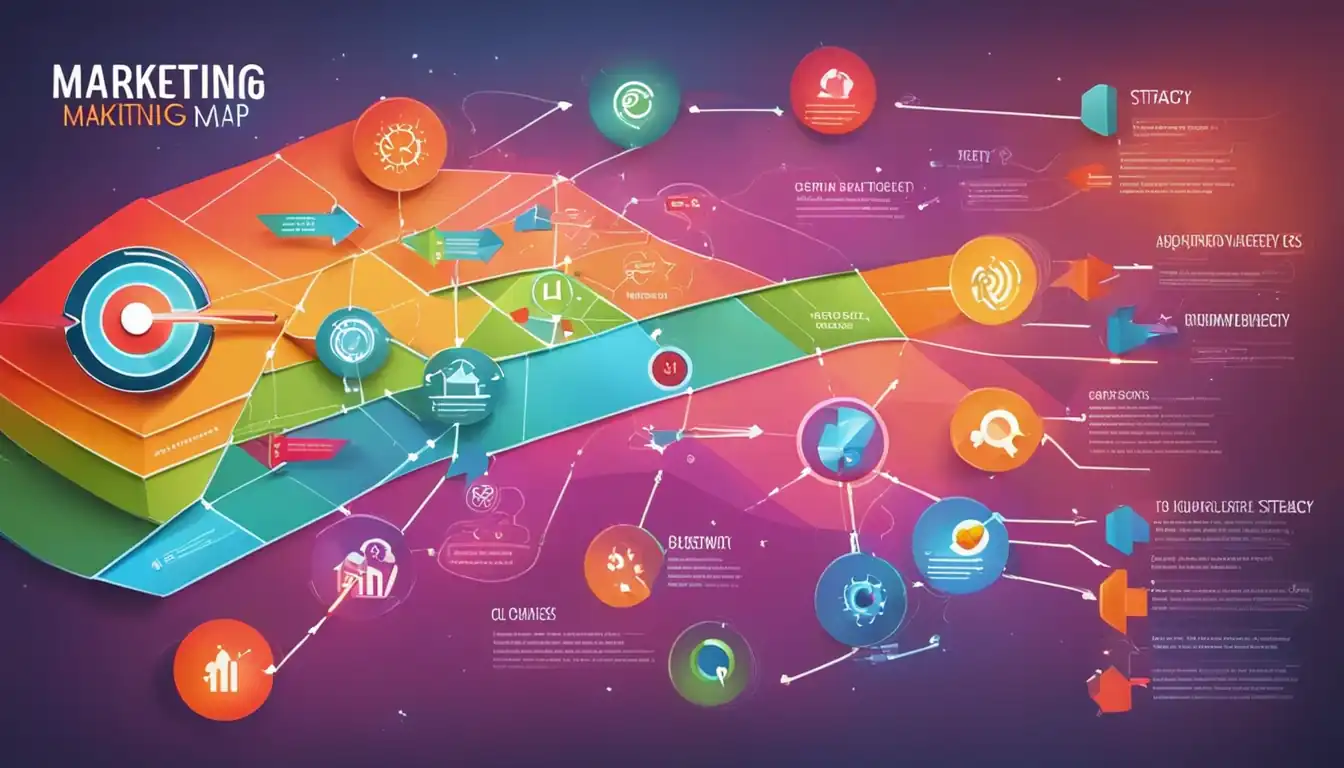Content Marketing for SEO: A Strategic Approach

In the vast world of digital marketing, content and SEO go together like peanut butter and jelly. Crafting quality content is essential for boosting your website's visibility in search engine results pages. But it's not just about churning out words - you need a strategic approach to make sure your content is optimized for SEO. In this post, we'll dive into the synergy between content and SEO, explore advanced strategies for crafting content that ranks, delve into on-page optimization techniques, and discuss how to measure success in your content marketing efforts.
Understanding the Synergy Between Content and SEO
Content marketing and SEO go hand in hand when it comes to boosting online visibility and driving organic traffic to your website. Let's delve into how these two strategies work together seamlessly.
The role of quality content in SEO
Quality content is the cornerstone of any successful SEO strategy. Search engines like Google prioritize websites that offer valuable, relevant, and engaging content to their users. By creating high-quality content that addresses the needs and interests of your target audience, you can improve your search engine rankings and attract more organic traffic to your site.
How SEO amplifies content reach
SEO acts as a powerful amplifier for your content by optimizing it for search engines. By incorporating relevant keywords, meta tags, and other on-page SEO elements into your content, you can increase its visibility in search engine results pages (SERPs) and drive more organic traffic to your website. Additionally, off-page SEO tactics such as link building can further enhance the reach of your content by increasing its authority and credibility in the eyes of search engines.
By strategically combining content marketing with SEO techniques, you can create a synergistic approach that maximizes the impact of your digital marketing efforts.
Crafting Content That Ranks
Keyword research done right
Keyword research is the foundation of successful content marketing for SEO. By identifying relevant keywords that have high search volume and low competition, you can tailor your content to target these specific terms. Tools like Google Keyword Planner, SEMrush, and Ahrefs can help you uncover valuable keywords that align with your business goals.
Structuring content for the web
When structuring your content for the web, it's important to consider both user experience and search engine optimization. Break up your content into digestible sections with clear headings and subheadings. Use bullet points and numbered lists to make information easily scannable. Incorporate relevant keywords naturally throughout your content to improve its visibility in search results.
By following these best practices for crafting content that ranks, you can enhance your SEO strategy and drive more organic traffic to your website.
On-Page Optimization Techniques
Mastering meta tags and descriptions
Crafting compelling meta tags and descriptions is crucial for on-page optimization. These elements provide search engines with information about the content of your page, helping them understand its relevance to user queries. Make sure to include relevant keywords in both the meta title and description to improve your chances of ranking higher in search results.
Image optimization secrets
Optimizing images is often overlooked but can have a significant impact on SEO. Use descriptive filenames and alt text that include relevant keywords to help search engines understand the content of your images. Additionally, compressing images to reduce file size can improve page load times, which is a known ranking factor for search engines.
Beyond the Basics: Advanced Content Strategies
Topic clusters and content silos
In order to boost your SEO efforts, it's essential to move beyond basic keyword optimization and delve into more advanced content strategies. One effective approach is utilizing topic clusters and content silos.
Topic clusters involve creating a pillar page that serves as the main hub for a broad topic, with multiple related subtopics branching off from it. This helps search engines understand the depth and breadth of your content on a particular subject, ultimately improving your ranking potential.
Content silos, on the other hand, involve organizing your website's content into distinct sections or categories based on specific themes or topics. This not only enhances user experience by making it easier for visitors to navigate your site but also signals to search engines that you are an authority on those subjects.
By implementing topic clusters and content silos in your content marketing strategy, you can create a more cohesive and comprehensive web of information that both users and search engines will appreciate.
Leveraging E-A-T for content credibility
E-A-T stands for Expertise, Authoritativeness, and Trustworthiness – three key factors that Google considers when evaluating the quality of online content. By focusing on enhancing these aspects in your content marketing efforts, you can improve your site's credibility and visibility in search results.
- Expertise: Demonstrate your expertise by providing valuable insights, data-driven analysis, and expert opinions on relevant topics within your industry.
- Authoritativeness: Establish authority by showcasing credentials, certifications, awards, and endorsements from reputable sources that validate your expertise.
- Trustworthiness: Build trust with your audience by being transparent about sources, citing references, displaying customer testimonials, and maintaining a professional online presence.
By prioritizing E-A-T in your content creation process, you can not only boost your SEO performance but also build a strong foundation of trust with both users and search engines.
Measuring Success in Content Marketing for SEO

Key performance indicators to watch
In content marketing for SEO, it is crucial to track key performance indicators (KPIs) to measure the success of your efforts. Some important KPIs to monitor include:
Organic traffic: Keep an eye on the amount of traffic coming to your website through organic search results. An increase in organic traffic indicates that your content is resonating with your target audience.
Keyword rankings: Monitor the rankings of your target keywords in search engine results pages (SERPs). Improvements in keyword rankings show that your content is optimized effectively.
Conversion rates: Track the percentage of website visitors who take a desired action, such as making a purchase or filling out a contact form. A high conversion rate indicates that your content is engaging and persuasive.
Backlink profile: Evaluate the quality and quantity of backlinks pointing to your website. A strong backlink profile can improve your website's authority and visibility in search results.
Tools and techniques for tracking progress
To effectively track the success of your content marketing efforts for SEO, consider using tools and techniques such as:
Google Analytics: Utilize this powerful tool to monitor website traffic, user behavior, and conversions. Google Analytics provides valuable insights into how users interact with your content.
SEMrush: This all-in-one SEO tool offers features like keyword research, competitor analysis, and site audits. Use SEMrush to identify opportunities for improving your content strategy.
Ahrefs: With Ahrefs, you can analyze backlinks, conduct keyword research, and track keyword rankings. This tool helps you understand how well your content is performing in search results.
Content management systems (CMS): Platforms like WordPress or HubSpot provide built-in analytics tools to track the performance of individual pieces of content. Leverage these CMS features to optimize your content strategy.
By regularly monitoring these KPIs and utilizing the right tools, you can measure the effectiveness of your content marketing efforts for SEO and make data-driven decisions to improve performance over time.
Conclusion
Content marketing for SEO is not a one-size-fits-all approach. It requires a deep understanding of how quality content and SEO work together to boost your online presence. By implementing advanced strategies, mastering on-page optimization techniques, and tracking key performance indicators, you can ensure that your content is reaching its full potential in the digital landscape. So roll up your sleeves, get creative with your content, and watch as your website climbs the ranks in search engine results!